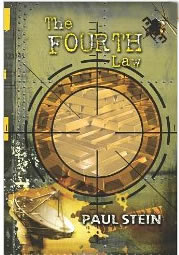Calaveras Enterprise: Guest Opinion
I read with interest Bob Reagan’s musing on the Calaveras election pro-cess. While I have great admiration for Bob, and consider him a friend, at times we view things from opposite ends of the spectrum.
Mr. Reagan suggests there should not be partisan endorsements for nonpartisan offices, such as the office of supervisor or superior court judge. While granted the right to his own beliefs, a look at hard facts shows a much different reality.
According to the American Bar Association, seven states have partisan elections for state high courts. A partisan election is one where the candidates are listed on the ballot along with a label designating the political party’s ballot on which they are running. Fourteen states have nonpartisan elections, but political parties are involved with the nomination of the candidates, who frequently run with party endorsements. Seventeen states have uncontested retention elections after initial appointment – including California. Judges in New Mexico are initially appointed but face a contested partisan election for a full term. It’s interesting to note that in 19 states, trial court judges participate in partisan elections and eight states hold partisan elections for appellate judges.
I agree that “there is no such thing as a Republican law or Democrat law; there is only equal justice for all,” as Mr. Reagan has written. But could anything be more partisan than a governor’s appointment of a judge to fill a vacancy on the bench as has recently happened in Cala-veras County? Or a United States president appointing a Supreme Court justice? On the federal level, Democrat President Barack Obama appointed Justice Sonia Sotomayer in 2009 in a well-publicized political process that was affirmed by the Democrat-led U.S. Senate. Before that, Republican President George Bush appointed Justice John Roberts in an equally well-documented political process. This partisan trend can be followed back to the appointment of all the current Supreme Court justices.
While Mr. Reagan takes exception to candidates receiving political party endorsements, most puzzling to me is why he doesn’t feel the same about judges – both active and retired – endorsing candidates of their choosing. In this regard, where is the unbiased impartiality that is the very hallmark of a judge? Actually, these judicial endorsements are meant to provide the very same point of reference for a candidate that a political endorsement is providing: vouching for the integrity, character, decision-making ability and professional acumen to do the job at hand. I see nothing wrong in either case. All are taking a stand and putting their reputation behind the person they think is the best choice.
While Mr. Reagan tires of seeing judicial signs and campaign ads marring his landscape, let’s not forget that free elections are a profound and valued American tradition, an honor and privilege many people around the world still fiercely covet, fight and die for. Voting is a privilege and the very cornerstone of democracy. Surely a few campaign signs can be tolerated for a short spell when one remembers the blood that has been shed for the right to post that sign. Freedom, after all, is not free.
In any case, meet with your candidates and carefully research their endorsements and affiliations. Only then will you be able to make an informed choice for the most qualified candidate, on any side of the aisle.
Paul Stein is a Calaveras resident and former county supervisor in District 2.



